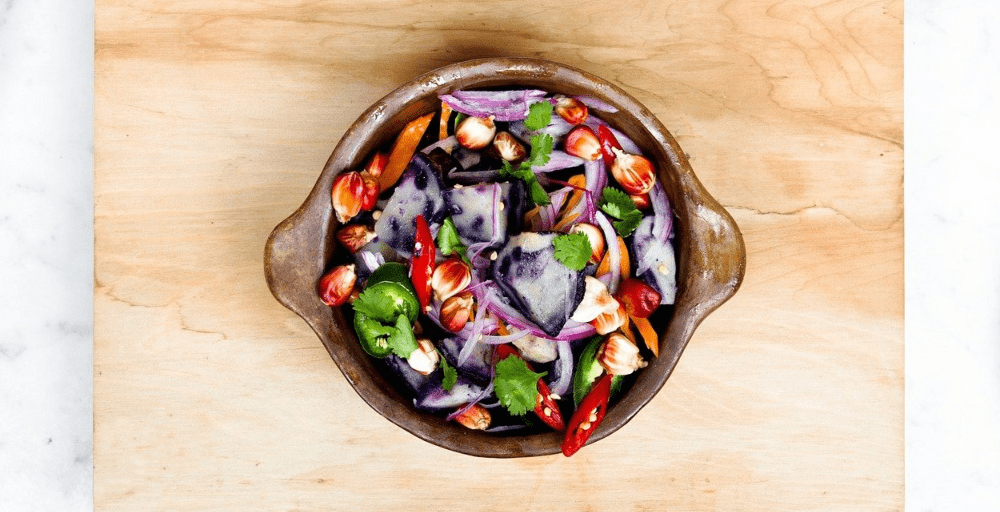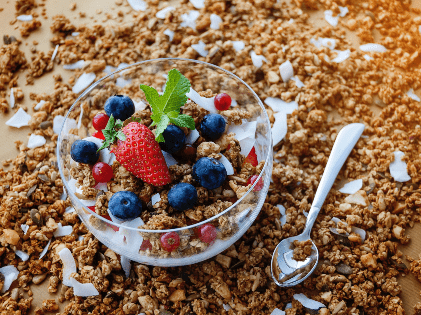
Here’s How You Can Follow The Cutting Diet To Lose Your Extra Pounds

 Cutting diet sounds nice. But what exactly is that? A superb way of reducing a person’s calorie intake, the diet ensures you lose body fat, but keeping the muscle mass intact. Many fitness enthusiasts and bodybuilders have recourse to cutting diet and this has become quite a trend these days. But does that mean you can also follow the diet plan to lose your extra pounds? Let’s find out.
Cutting diet sounds nice. But what exactly is that? A superb way of reducing a person’s calorie intake, the diet ensures you lose body fat, but keeping the muscle mass intact. Many fitness enthusiasts and bodybuilders have recourse to cutting diet and this has become quite a trend these days. But does that mean you can also follow the diet plan to lose your extra pounds? Let’s find out.
What Exactly Is A Cutting Diet?
Many people prefer to call this ‘shredding’, which has a fixed target of allowing someone to cut down on the excess fat and thereby maintain muscular health.
A large number of people combine cutting diets with their fitness regimes. In fact, those who work out professionally also recommend the same, for they too embrace this. This is especially true when the cutting diet performs the role of a short-term program, preceding a special event or competition, or simply a small part of the total training program.
Getting Started With A Cutting Diet
Ideally, bodybuilders follow a cutting diet for close to 2 to 4 months. Though a person is capable of deciding how much the cutting diet would fulfill his or her individual requirements, one thing is guaranteed – it’s not a long-term diet plan. Before starting with this diet, a person usually has built up a great deal. As a result of this bulking, which is all about consuming a very high protein and high calorie-laden diet, intensive weightlifting can cause a person to ‘bulk up’ and build muscle mass.
To maintain weight, the consumption of these calories eventually helps build new muscles. Creating what we call ‘caloric surplus’ is a must for getting adequate nutrients, which is why fitness professionals recommend following this practice. After that, you need to enter the ‘cutting down’ phase, as you need to eliminate the fat you have gained while retaining your muscle mass. After all, that’s the whole idea of this particular diet plan.
Role Of Macronutrients And Weight Loss
 Even if it sounds appealing, weight loss isn’t that easy! A person would require more energy than what’s consumed and then think of losing the surplus weight. In other words, this is known as ‘caloric deficit. You may think you can manage it without the help of a nutritionist, but it’s actually easier said than done.
Even if it sounds appealing, weight loss isn’t that easy! A person would require more energy than what’s consumed and then think of losing the surplus weight. In other words, this is known as ‘caloric deficit. You may think you can manage it without the help of a nutritionist, but it’s actually easier said than done.
Depending upon one’s weight, age, sex, and size proportions, only experts can determine how many calories a person needs to get rid off to shed extra weight. It differs from person to person, so it becomes essential to talk to someone who knows exactly how many calories should be consumed on a certain day, to facilitate the process of burning.
For example, if the weekly weight loss plan is 1% of the total body weight, fats consumed should be anywhere between 15-30% of total calories, protein must be 2.3-3.1 grams per kilogram of bodyweight, which is about 25-30%; and lastly, carbohydrates must occupy 55-60% of the total calories consumed.
Timing And Frequency
 Going by what the International Society of Sports Nutrition (ISSN) has stated, the daily intake of proteins should be even and at about 3-4 hour intervals throughout the day, followed by exercising for an hour or so.
Going by what the International Society of Sports Nutrition (ISSN) has stated, the daily intake of proteins should be even and at about 3-4 hour intervals throughout the day, followed by exercising for an hour or so.
To top it all, ISSN has also recommended that proteins should be combined with carbohydrates before exercising, after exercising, or both. Now, what’s the exact protein content that is shaped up largely after a workout; which is equally dependent upon the timings of meals or the size of the person. If bodybuilding is the goal, then the frequency of diets should be at a moderate level. Somewhere around 3-6 meals every day, coupled with 20 grams of protein.
Does It Mean No ‘Cheat Days’?
Absolutely not! There’s no harm in having occasional cheat days, even when the cutting diet is in full swing. Basically, cheat days are all about ‘occasional indulgences’ and that actually never harms anyone. In fact, on the contrary, it’s helpful when eating out.
Refeeding that involves the inclusion of more carbohydrates, helps build one’s stamina, performance, and energy levels. Believe it or not, but a 2017 study also showcased that people can lose fat faster and retain their muscles well when reefed days keep happening.
The lookout is that for maintaining a healthy diet and sticking to the goals carved. So even if cheat or refeed days are scheduled, they should be done with absolute carefulness and precision.
More in Diet
-
`
Are Mono Diets Worth It – or Just a Dangerous Trend?
As summer brings on the pressure to slim down fast, the internet lights up with diet trends promising instant results. One...
August 3, 2025 -
`
Why Motivation Is Essential for Sustainable Fitness Success
Motivation isn’t something that shows up when it’s convenient—it’s something that needs to be built, shaped, and sustained. Many people struggling...
July 27, 2025 -
`
The Mystery of Human Body Parts That Science Still Can’t Solve
The human body is a patchwork of evolutionary choices, quirks, and mysteries. From skeletal structure to the tiniest gland, everything tells...
July 18, 2025 -
`
Why a Mediterranean Diet and Exercise Slow Bone Loss in Seniors
Bone health isn’t just a concern for the elderly—it’s something that starts to matter the moment the body begins to lose...
July 12, 2025 -
`
Want Better Memory? This Diet Could Help Keep Your Brain Sharp
Losing focus, memory lapses, or slower thinking—these aren’t just normal parts of aging. While cognitive changes do happen over time, lifestyle...
July 5, 2025 -
`
The Truth About Health Tracking Apps and Their Impact on Wellness
Scroll through social media or browse the App Store, and you’ll likely spot dozens of health tracking apps. They promise everything—from...
June 29, 2025 -
`
New Study Reveals Alzheimer’s Affects the Entire Body
Most people associate Alzheimer’s with memory loss and cognitive decline, assuming its impact stays confined to the brain. But new findings...
June 21, 2025 -
`
The One Simple Habit Mark Cuban Credits for His Success
Success doesn’t come from shortcuts or luck—it’s built on habits that stand the test of time. Mark Cuban, the outspoken billionaire,...
June 14, 2025 -
`
Thinking of a Detox Diet? Read This Before You Start
Detox diets continue to be one of the most talked-about trends in the wellness space. Whether it’s juice cleanses, tea plans,...
June 8, 2025









You must be logged in to post a comment Login